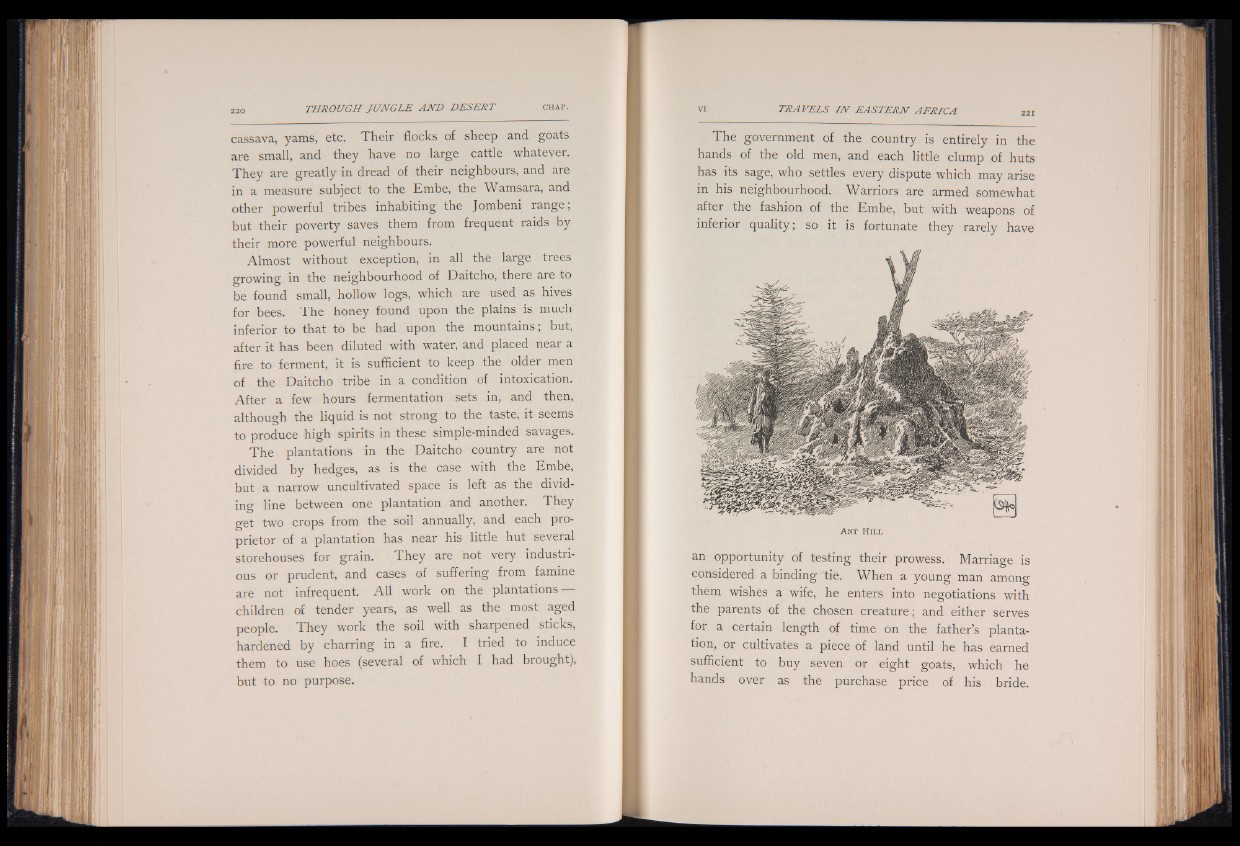
cassava, yams, etc. Their flocks of sheep and goats
are small, and they have no large cattle whatever.
They are greatly in dread of their neighbours, and are
in a measure subject to the Embe, the Wamsara, and
other powerful tribes inhabiting the Jombeni range;
but their poverty saves them from frequent raids by
their more powerful neighbours.
Almost without exception, in all the large trees
srrowinsr in the neighbourhood of o o <~> Daitcho, there are to
be found small, hollow logs, which are used as hives
for bees. The honey found upon the plains is much
inferior to that to be had upon the mountains; but,
after it has been diluted with water, and placed near a
fire to ferment, it is sufficient to keep the older men
of the Daitcho tribe in a condition of intoxication.
After a few hours fermentation sets in, and then,
although the liquid is not strong to the taste, it seems
to produce high spirits in these simple-minded savages.
The plantations in the Daitcho country are not
divided by hedges, as is the case with the Embe,
but a narrow uncultivated space is left as the dividing
line between one plantation and another. They
get two crops from the soil annually, and each proprietor
of a plantation has near his little hut several
storehouses for grain. They are not very industrious
or prudent, and cases of suffering from famine
are not infrequent. All work on the plantations
children of tender years, as well as the most aged
people. They work the soil with sharpened sticks,
hardened by charring in a fire. I tried to induce
them to use hoes (several of which I had brought),
but to no purpose.
The government of the country is entirely in the
hands of the old men, and each little clump of huts
has its sage, who settles every dispute which may arise
in his neighbourhood. Warriors are armed somewhat
after the fashion of the Embe, but with weapons of
inferior quality; so it is fortunate they rarely have
A n t H i l l
an opportunity of testing their prowess. Marriage is
considered a binding tie. When a young man among
them wishes a wife, he enters into negotiations with
the parents of the chosen creature; and either serves
for a certain length of time on the father’s plantation,
or cultivates a piece of land until he has earned
sufficient to buy seven or eight goats, which he
hands over as the purchase price of his bride.